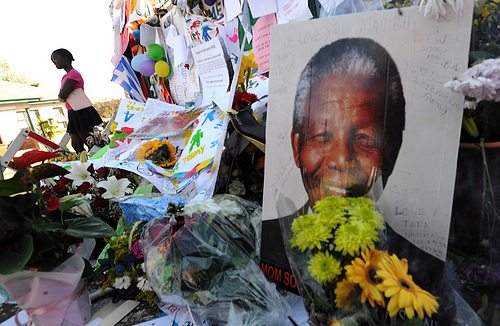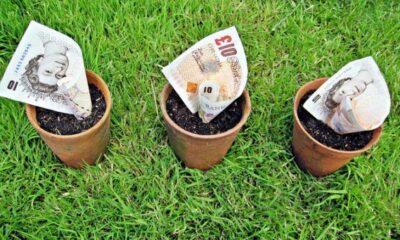

Economy
Economic reform requires fighting spirit and humility. We can learn from Mandela
South African financial activist Brett Scott relays his memories of Nelson Mandela and says how the great man’s fighting spirit and humility can help inspire global financial change.
Once, when I was a teenager, I stood in an airport bookstore browsing through a copy of Birds & Birding magazine. Nelson Mandela appeared at my side, just in my peripheral vision, along with two bodyguards.
He was browsing the magazines too; the most famous man in South Africa taking an interest in the niche hobbies and interests of ordinary people, the cycling magazines and gaming catalogues and craft guides. I wanted to say something, but it felt improper to disturb him. He had the right to some quiet time amid the day-to-day struggle of repairing one of the most divided nations on the planet.
Years later, I tutored one of Mandela’s grandsons at university. He was a mature student, several years older than me, who hadn’t had the luxury of attending university earlier in his life. He, like his grandad, had a warmth and grace, and showed great curiosity about many aspects of life. I felt like something of a fraud as I marked his essay papers, and could only wonder at the experiences his family had gone through, and the dinner conversations he would have grown up with.
The following year, I went to work in the Transkei, the old apartheid ‘homeland’ where Mandela was born, and where he had now relocated. I used to drive past his house in Qunu quite frequently, but would often miss it. It was notable only for being particularly unostentatious. The BBC even sent their Groundforce team to spruce up the garden for him, feeling it wasn’t up to scratch.
I worked in the Transkei with Xhosa people. It is one of the poorest regions of South Africa, frequently disconnected from the development and international capital that situates itself in Johannesburg and the other cities. It was there, in 2006, that I learned that I had been awarded the Magdalene Mandela scholarship to Cambridge University. This, via a variety of twists and turns, led to where I am today, working on empowering people to try understand and reform the global financial system, and to build alternative economic systems.
Economic reform movements in general can learn much from the Madiba story. Mandela faced an overt power structure, an obvious system of injustice that clearly benefited only a small slice of the overall South African population. Despite the media portrayals of Mandela as being mostly a figure of reconciliation, he was first and foremost a gritty fighter, but one coming from a place of deep warmth for humanity.
Global economic injustice nowadays is often much more subtle than the old apartheid system, and yet the inequality and implicit power structures are clear once you start to look. Approaching the problem requires the right combination of fighting spirit and humility, and the ability to reflect on your own position within that system. I’d like to think Mandela can still help us all with that.
Brett Scott is a campaigner, journalist and author of The Heretic’s Guide to Global Finance: Hacking the Future of Money (Pluto Press). He tweets as @suitpossum.
Further reading:
Transforming Finance: how can we fix our broken financial system?
Conference looks to transform ‘broken’ financial infrastructure
What’s gone wrong with finance?
Bruce Davis, Abundance: ‘we can do something different with money’
Small is beautiful: why alternative banks need to step up to the mark
‘A small bit of knowledge can help empower you around your own finances’


 Environment12 months ago
Environment12 months agoAre Polymer Banknotes: an Eco-Friendly Trend or a Groundswell?

 Features11 months ago
Features11 months agoEco-Friendly Cryptocurrencies: Sustainable Investment Choices

 Energy11 months ago
Energy11 months agoThe Growing Role of Solar Panels in Ireland’s Energy Future

 Energy12 months ago
Energy12 months agoHow Renewable Energy Can Help Combat Climate Change, According to Indra Energy


























